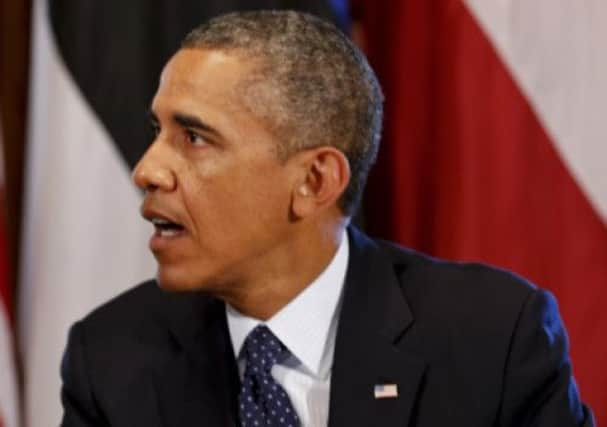Leaders: Iran deal worth the risk, whoever thinks they won


True, the initial agreement lasts only six months. But as Iran could have been in a position to assemble a basic nuclear device next summer, even a modest hiatus in its atomic preparations is good news and ensures Israel will take no precipitate action. A short diplomatic breathing space is not to be discounted in the political tinderbox of today’s Middle East. Jaw, jaw trumps war, war as Churchill aptly put it.
This interim agreement is also a good way of testing if Iran can be trusted to keep its word. Tehran has agreed to give UN inspectors better access to its reprocessing facilities, a promise that is difficult to fudge or renege on without exposing bad faith. Critics are right to say the accord does nothing to dismantle Tehran’s capability to process weapons grade uranium whenever it wants. But securing the right to inspect the regime’s nuclear plant is a vital concession, and establishes a clear diplomatic tripwire that Tehran crosses at its peril.
Advertisement
Hide AdAdvertisement
Hide AdYet there is much to worry about in this deal. The Iranian economy has been brought to its knees by western sanctions and the regime was desperate to win a respite to mollify internal dissent. President Hassan Rouhani has achieved that goal at comparatively modest cost, thereby strengthening the grip of the religious dictatorship.
It is not just Israel that fears Iran has been let of the hook – Saudi Arabia and the Gulf States have greeted the Geneva agreement with stony silence. They fear that a diplomatic win for Tehran will strengthen the hand of President Assad in Syria, Iran’s client state and ally.
But when all is said and done, the Geneva deal is worth the risk. Tehran now understands that western sanctions have sharp teeth. It must also realise that having offered Iran diplomatic concessions and held Israel in check, President Obama will have no option but to take drastic military action if Iran reneges on its nuclear promises.
The onus is now on Obama and Hague to turn this interim deal into something permanent – one that draws Tehran’s nuclear teeth once and for all. Any final agreement must see Iran disband its tens of thousands of uranium processing centrifuges – far more than is needed for any purely civilian atomic energy programme.
Iran’s plant for making plutonium – which can only have a military intent – must also be dismantled. And it would also make sense for Tehran to dispose of the excessive amounts of low enriched uranium it already possesses – enough to make six to seven atomic bombs.
There has been political impasse in the Middle East for a generation. The Geneva agreement could be a game-changer.
RBS reputation slips even lower
What is to be done with RBS, the once proud flagship of Scottish business, now a ward of the state and beset by litigation as a result of alleged past commercial misdeeds?
True, other banks imploded during the economic crisis of 2008, and other banks have been caught up in the long list of miss-selling and rate-fixing scandals that emerged in the wake of the credit crunch. But RBS seems to be struggling to fix what is wrong and restore confidence in its name. As a result, RBS is in serious danger of suffering further damage to its reputation.
Advertisement
Hide AdAdvertisement
Hide AdThe latest apparent scandal has been revealed by Lawrence Tomlinson, an adviser to Business Secretary Vince Cable. Mr Tomlinson has evidence alleging that senior executives at RBS put “good and viable” client businesses into default so the bank could repossess their assets at a knockdown price. Mr Cable has described the allegations as “very serious”.
What is disturbing is that this alleged practice took place after 2008, when RBS was trying to clean up its balance sheet. If the charges prove true, RBS is in for yet another round of being sued. Ross McEwan, the new boss of RBS, was brought in to clean out the stables and ready RBS for privatisation. Unfortunately, there is a danger that – under pressure from the Chancellor – RBS engage in more of the short-term thinking that has led to cutting corners with such drastic consequences for the bank’s reputation.
It might be better if Mr
McEwan was given time to re-focus RBS primarily on the needs of its customers rather than those of the Treasury. He might start by ensuring small businesses get the support they need.